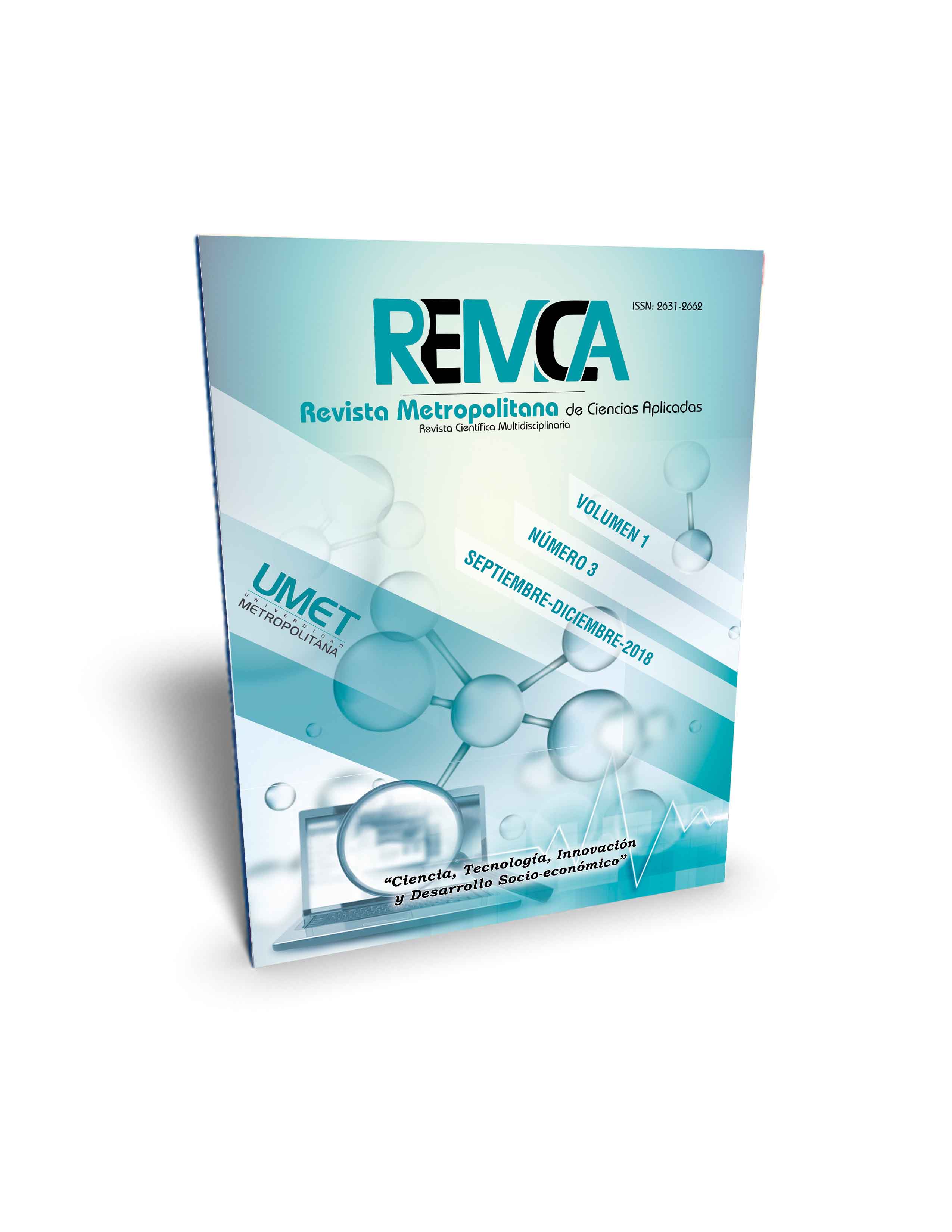An approach to the impact of disruptive technologies
DOI:
https://doi.org/10.62452/1p5cfx96Keywords:
Innovation, technology, enfoque sistémico empresarialAbstract
ABSTRACT
The last decades attend a big amount of technological changes. The speed of technological change is such that has released a definition for organizational consequences that this change has. It is disruptive technology, considered as the diffusion of innovations driving the disappearance of products or services that were used by the society. This obviously has, an impact in the customs and habits of people, the behavior of markets, the social relationships and even in economic processes. The objective of this study is to analyze the impacts of disruptive technologies in the Latin American social and business environment. This has been revised a set of publications of authors and institutions recognized in the world, from the Science-Technology - Society approach. The paper formulates the main sheds, in which impacts on the various business subsystems are manifested.
Downloads
References
Banco Mundial. (2017). Ecuador. Panoframa general. Recuperado de http://www.bancomundial.org/es/country/ecuador/overview
Banco Mundial. (Abr de 2018). Datos. Energía y minería. Recuperado de https://datos.bancomundial.org/tema/energia-y-mineria
Consejo Mundial de Energía. (2017). Las tendencias y tecnologías disruptivas emergentes encabezan la agenda energética mundial. Recuperado de https://www.worldenergy.org/publications/2017/2017-world-energy-issues-monitor/Danish Energy Agency. (2016). Energía en Dinamarca. Recuperado de http://www.conama.org/conama/download/.../conama2016/
Drucker, P. &. (2015). On innovation. Massachusetts: HBR.
Drucker, P. (2002). The discipline of innovation. Harvard Business Review, 5-9. Recuperado de https://hbr.org/2002/08/the-discipline-of-innovation
ECUATRAN. (2018). La energía renovable en Ecuador. Recuperado de http://www.ecuatran.com/blog/la-energia-renovable-en-ecuador/
Fondo de Población de las Naciones Unidas. (2012). Resumen ejecutivo. Envejecimiento en el Siglo XXI: Una celebración y un desafío. Recuperado de https://www.unfpa.org/sites/default/files/pub-pdf/Ageing%20Report%20Executive%20Summary%20SPANISH%20Final_0.pdf
Fondo de Población de las Naciones Unidas. (2014). Tendencias demográficas. Perspectivas de población. Recuperado de https://www.unfpa.org/es/tendencias-demogr%C3%A1ficas
Foro Económico Mundial. (2018). La cuarta revolución industrial. Recuperado de https://toplink.weforum.org/knowledge/insight/a1Gb0000001RIhBEAW/explore/summary
Loza, D. &. ( 2015). Introducción a la Tecnología Disruptiva y su Implementación en Equipos Científicos. Revista Politécnica, 36(3). Recuperado de https://www.revistapolitecnica.epn.edu.ec/images/revista/volumen36/tomo3/IntroduccionalaTecnologiaDisruptivaysuImplementacionenEquiposCientificos.pdf
Moreno, C. (2014). Transición energética en Cuba. Recuperado de http://www.cubasolar.cu/biblioteca/Energia/
Organización de Naciones Unidas. (2015a). Conferencias de las Naciones Unidas sobre Cambio Climático 2015. Recuperado de https://www.mapama.gob.es/es/cambio-climatico/temas/cumbre-cambio-climatico-cop21/resultados-cop-21-paris/default.aspx
Organización de Naciones Unidas. (2015b). Objetivos de desarrollo sostenible. de http://www.un.org/sustainabledevelopment/es/objetivos-de-desarrollo-sostenible/#
Organzación Internacional del Turismo. (2018). Población mundial Ingresos mundiales - Human Development Reports. Recuperado de http://hdr.undp.org/sites/default/files/hdr_1992_es_completo_nostats.pdf
Organzación Mundial de la Salud. (2013). La salud en la agenda de las Naciones Unidas después del 2015. Recuperado de http://www.who.int/topics/millennium_development_goals/es/
Osorio, C. (2002). Enfoques sobre tecnología. Revista Iberoamericana de Ciencia, Tecnología, Sociedad e Innovación, (2). Recuperado de https://www.oei.es/historico/revistactsi/numero2/osorio.htm
Pacey, A. (2011). Meaning in technology. Massachusetts: MIT.
Pastor, J. (19 de Enero de 2016). España frena el avance. Recuperado de http://www.xataka.com/energia/
Downloads
Published
Issue
Section
License
Copyright (c) 2018 Ana Lilia Castillo Coto (Autor/a)

This work is licensed under a Creative Commons Attribution-NonCommercial-ShareAlike 4.0 International License.
Authors who publish in Revista Metropolitana de Ciencias Aplicadas (REMCA), agree to the following terms:
1. Copyright
Authors retain unrestricted copyright to their work. Authors grant the journal the right of first publication. To this end, they assign the journal non-exclusive exploitation rights (reproduction, distribution, public communication, and transformation). Authors may enter into additional agreements for the non-exclusive distribution of the version of the work published in the journal, provided that acknowledgment of its initial publication in this journal is given.
© The authors.
2. License
The articles are published in the journal under the Creative Commons Attribution-NonCommercial-ShareAlike 4.0 International License (CC BY-NC-SA 4.0). The terms can be found at: https://creativecommons.org/licenses/by-nc-sa/4.0/deed.en
This license allows:
- Sharing: Copying and redistributing the material in any medium or format.
- Adapting: Remixing, transforming, and building upon the material.
Under the following terms:
- Attribution: You must give appropriate credit, provide a link to the license, and indicate if any changes were made. You may do this in any reasonable manner, but not in any way that suggests the licensor endorses or sponsors your use.
- NonCommercial: You may not use the material for commercial purposes.
- ShareAlike: If you remix, transform, or build upon the material, you must distribute your creation under the same license as the original work.
There are no additional restrictions. You may not apply legal terms or technological measures that legally restrict others from doing anything the license permits.




